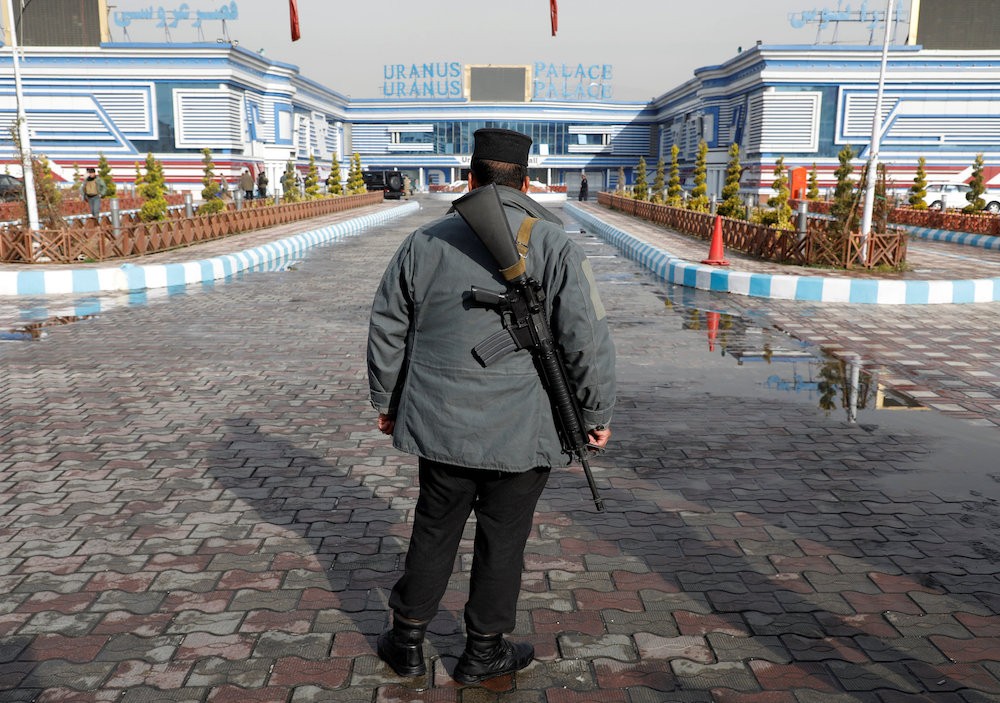Popular Reads
Top Results
Can't find what you're looking for?
View all search resultsPopular Reads
Top Results
Can't find what you're looking for?
View all search resultsAlarm bells in India over US plan to cut troops in Afghanistan
Indian experts think US withdrawal from Afghanistan will give an advantage to Afghan Taliban and Pakistan.
Change text size
Gift Premium Articles
to Anyone
P
resident Donald Trump’s plan to reduce US troops in Afghanistan has set off alarm bells in India with experts suggesting New Delhi change its hostile attitude towards Taliban who in the new situation could gain significant influence in the war-ravaged country.
In comments published in various Indian and US media outlets, Indian scholars and think-tank experts noted that Washington appears to be preparing for a complete withdrawal from Afghanistan, which will give an advantage to both the Taliban and Pakistan.
“This is bad news for New Delhi, which must prepare for the fallout,” Avinash Mohananey, a former Indian intelligence official who has served in Pakistan, wrote in the Economic Times.
Mohananey urged India to first ask Washington not to withdraw precipitately and then to reach out to Taliban because their anticipated rise could “sound the death knell for the government of Ashraf Ghani and also for Indian influence there”, he warned.
The main Indian objective — according to him — should be to ensure that Afghanistan “remains friendly towards it, not a haven for hostile elements”.
The Trump administration announced last week that the US will pull out nearly half of its more than 14,000 troops in Afghanistan, triggering speculations across about how this withdrawal would impact Afghanistan and its neighbouring states, particularly Pakistan.
Islamabad also views this development as hugely significant and last week it sent its foreign minister to Afghanistan, China, Russia and Iran to discuss with them various options for a peaceful transition in Kabul. Pakistan is already working with the United States to persuade the Taliban to join the Afghan peace process. Islamabad also attended last month’s talks between the US and Taliban representatives in the UAE, which led to Washington announcing its intention to reduce its military presence in Afghanistan.
Indian scholars argue that this development could change the security scenario in South Asia as well, “requiring reorientation of (India’s) strategic policy” in dealing with both the Taliban and Pakistan.
Harsh Pant, of the Indian think-tank Observer Research Foundation, wrote that the US withdrawal could lead to Afghanistan’s “gradual descent into a civil war,” not just because local actors would fight for power but also because “various regional stakeholders (would) try to reshape the battlefield in accordance with their own strategic priorities”.
Pant warned that a strengthened Taliban in Afghanistan could subsequently spread its influence to “neighbouring Pakistan and Kashmir, which would be bad news for India”.
CNBC News also included a statement by K. Rajendra Kumar, former director of police in India-held Kashmir (IHK), saying that a change in US policies in Afghanistan would also have implications for IHK, which is home to independence movements and anti-India protesters.
CNBC noted IHK has also been the site of brutal crackdowns by Indian soldiers against suspected armed Kashmiris and warned: “Add the ideological backing of a reinvigorated Taliban to the mix and the results could provoke another insurgency in the Himalayan valley”.
Nitin Pai, director of the Takshashila Institution, a Bangalore-based think-tank, also warned India that changes in Afghanistan would impact IHK.
The Voice of America radio reported that the US commander in Afghanistan travelled to Pakistan on Thursday to discuss Afghan reconciliation efforts with Pakistan’s military chief.
This article appeared on the Dawn newspaper website, which is a member of Asia News Network and a media partner of The Jakarta Post










